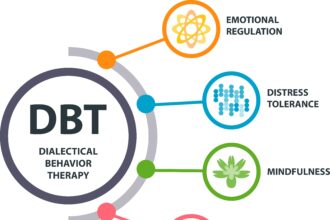
Shingles is a painful disease caused by the same virus as the chicken pox — the herpes zoster virus– and affects an estimated 1 million people annually. In fact, more than half of all Americans will have experienced shingles by age 80.

Shingles is a painful disease caused by the same virus as the chicken pox — the herpes zoster virus– and affects an estimated 1 million people annually. In fact, more than half of all Americans will have experienced shingles by age 80.
Since shingles is very common, you may have heard differing information from friends, fellow caregivers, and healthcare providers. Let’s sort the truth about shingles from myth.
Shingles 101
Shingles is the reactivation of the dormant chicken pox virus that uniquely affects on side of the body. In the event of altered immunity, age, illness or other stressor, the virus re-emerges from its long-time home in the spinal nerves and a painful skin rash breaks out. Shingles may begin with pronounced fatigue and typically develops in three stages: severe pain or tingling along the nerve pathway, itchy rash, and blisters that resemble chickenpox.
Shingles myths and facts
Myth: Only elderly people get shingles.
Fact: Shingles is most common in older adults over age 60, however the disease can infect people of any age who have had chickenpox in the past. Because the immune system declines with age, seniors are at greater risk.
Myth: Shingles is contagious.
Fact: Shingles cannot be given to another person who has already had chickenpox. However direct or close contact with the rash can result in a chickenpox infection for someone who has never had chicken pox before, but this type of transmission is very uncommon. Shingles is not contagious before the rash appears or when the rash has crusted over.
Myth: Once you get shingles, you can never get it again.
Fact: While it’s true that over half of seniors will have an attack of shingles, the likelihood of multiple infections is estimated to be 1%-4%.
Myth: There are no medical complications associated with shingles.
Fact: Shingles is accompanied by intense, debilitating pain that interferes with basic functions, results in loss of sleep, and even depression. Outbreaks on the face or eyes can cause vision or hearing problems. Permanent blindness can result if not treated quickly. Other complications from shingles include: encephalitis, facial paralysis (Ramsay hunt syndrome), bacterial infections on the skin, and pneumonia.
Myth: Shingles cannot be prevented
Fact: A vaccine for shingles become available in 2006 and has been shown to reduce the risk for shingles by 50%. A single dose is recommended for older adults age 60 and older.
Do you have additional information about the shingles virus you’d like to share? Let us know in the comments below.







